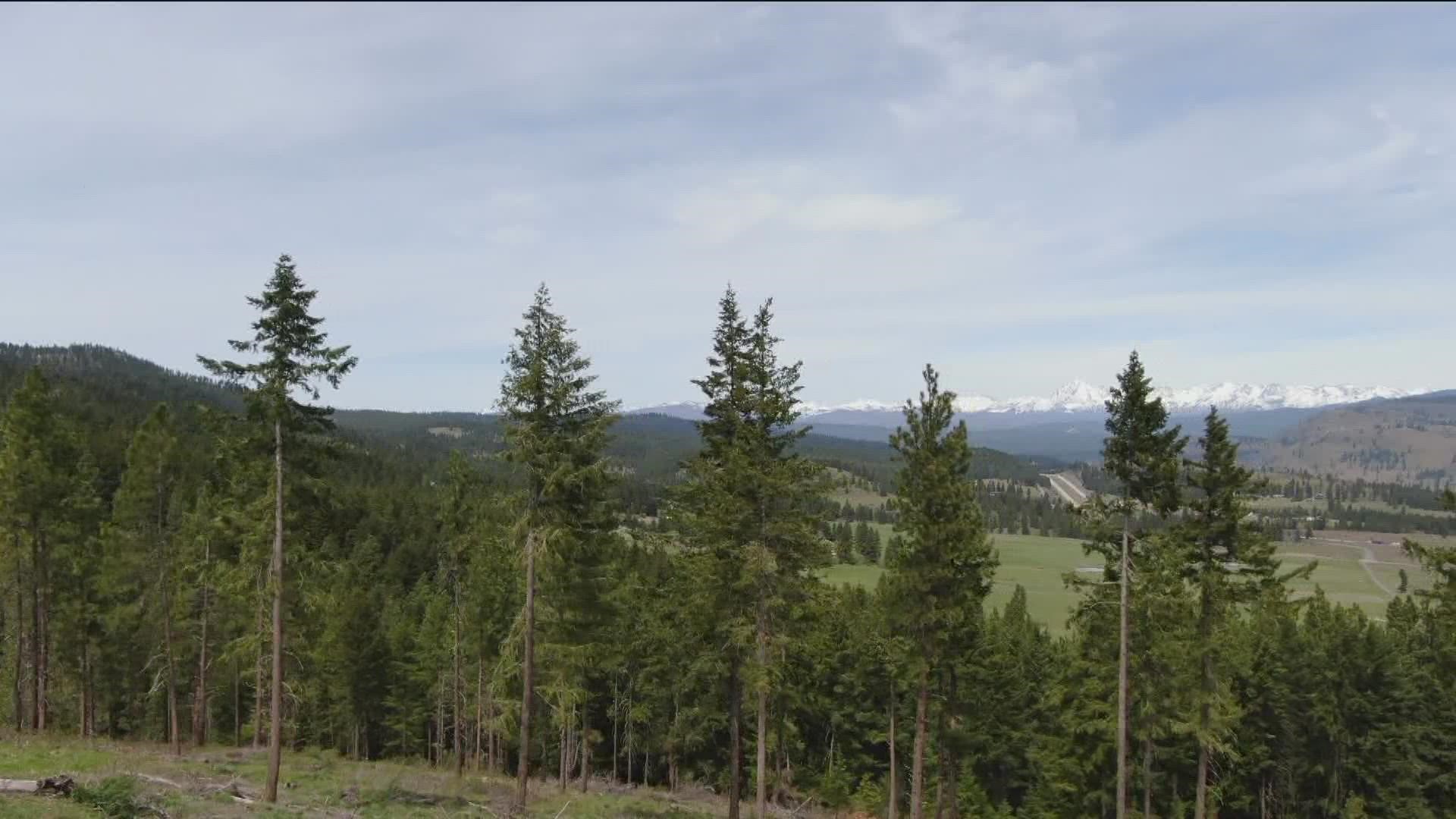BOISE, Idaho — Idaho Gov. Brad Little and other statewide elected officials have approved a northern Idaho conservation easement as part of a program that has protected from development about 156 square miles (400 square kilometers) of private timberland.
The Republican governor and other Land Board members on Tuesday unanimously approved the deal giving Idaho the easement title to 166 acres (67 hectares) in northern Idaho under the federal Forest Legacy Program.
In return for the easement, the non-industrial family landowner, Hartland LLC, will receive a $275,000 payment. That money comes from the Land and Water Conservation Fund, a popular federal program that supports conservation and outdoor recreation projects across the country. The program is funded using royalties from offshore oil and gas drilling.
In all, the Idaho easements open 140 square miles (360 square kilometers) to the public in perpetuity for recreation, free of charge.
“We're going to get a lot more of these,” Little said immediately after the Land Board meeting. “The timber industry likes it, the conservation community, the hunters like it. The community likes it because they don't get that fractured — people selling a little piece of property here, a little piece of property there, and putting houses on it."
The Hartland easement has an appraised value of 365,000. The Forest Legacy Program requires a non-federal cost share of 25%. Hartland donated about $91,000 of the land value as part of the deal.
Tuesday's action boosts the number of conservation easements purchased in Idaho to 44 at a cost of $42.5 million. The non-federal cost share for the easements was $24 million.
Idaho officials say another 5 square miles (13 square kilometers) conservation easements have been donated to Idaho with no payment required.
Most of the easements are in northern Idaho, with about half in Boundary and Bonner counties, said Lacy Robinson, Forest Legacy Program coordinator for the Idaho Department of Lands.
“A lot of these landowners, they're getting frequent offers on their properties, especially the large industrial landowners,” Robinson said. “A lot of our small non-industrial private forest owners are conservation-minded, and they want to make sure their land is protected into the future from development and subdivision.”
For Idaho, the objective of participating in the Forest Legacy Program is to help maintain the cultural and economic stability of rural communities by conserving timberland. Other objectives include enhancing water quality and protecting wildlife habitat.
The easements require landowners to participate in a forest stewardship program, which means managing the land for timber. Lands that qualify for the program must be at least 75% forested. Idaho is responsible for monitoring and enforcing easement terms. The easement remains if an owner sells the land.
About half of the easements involve small landowners and half industrial landowners, Robinson said. But about 90% of the land in the easements is from industrial landowners.
The first easements in the early 2000s came from Potlatch Lumber, now PotlatchDeltic, and combined were about 80 square miles (200 square kilometers).
Robinson said that there are more easements in the pipeline, including one for 40,000 acres owned by the Millwood, Washington-based Inland Empire Paper Company. Robinson said the easement is still in the funding phase but could come before the Land Board in the next five years.
Statewide, the Land Board directs the Idaho Department of Lands in managing about 3,900 square miles (10,100 square kilometers) of state-owned land. The big revenue producer on those lands is timber.
Watch more Local News:
See the latest news from around the Treasure Valley and the Gem State in our YouTube playlist:

